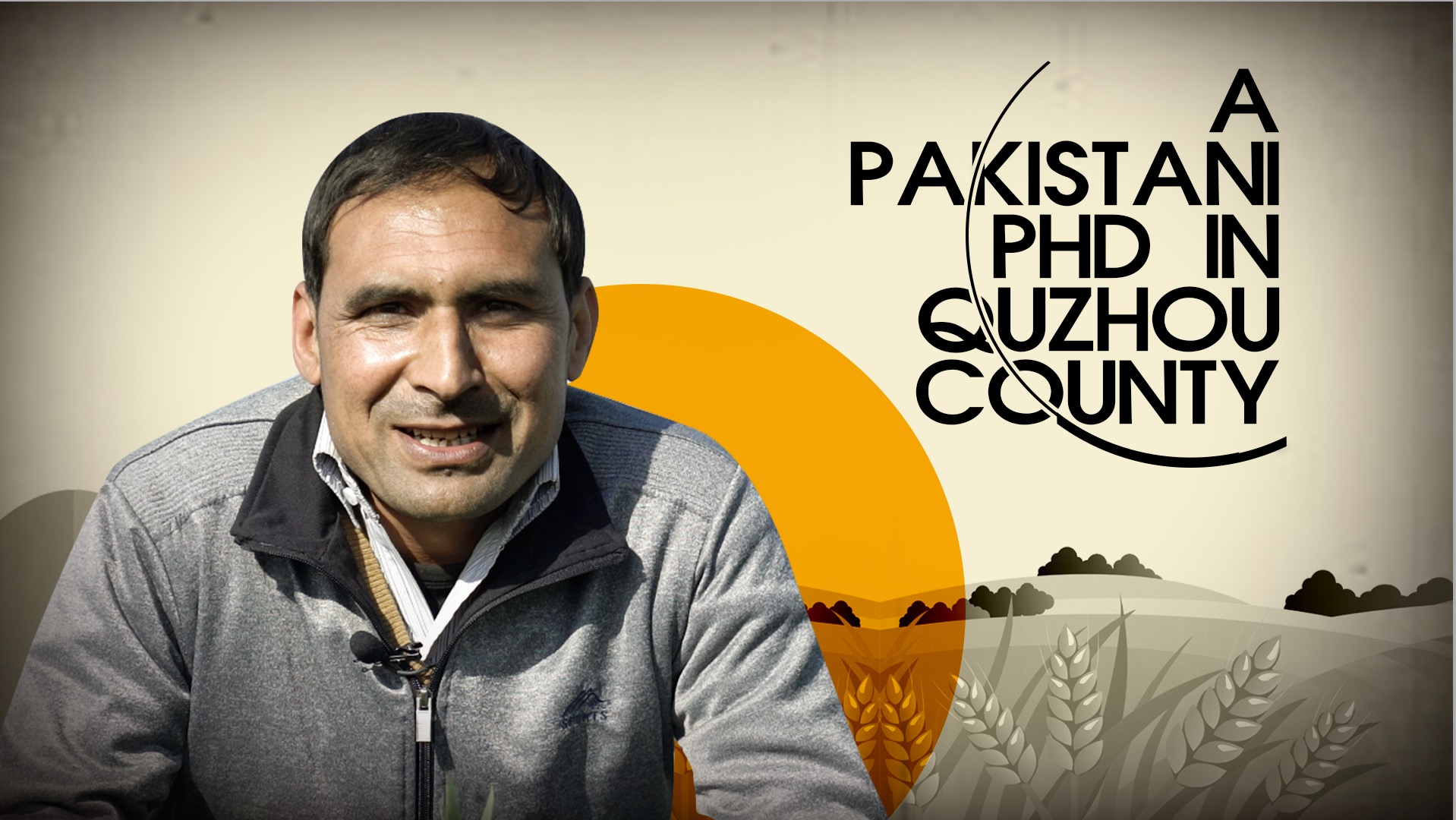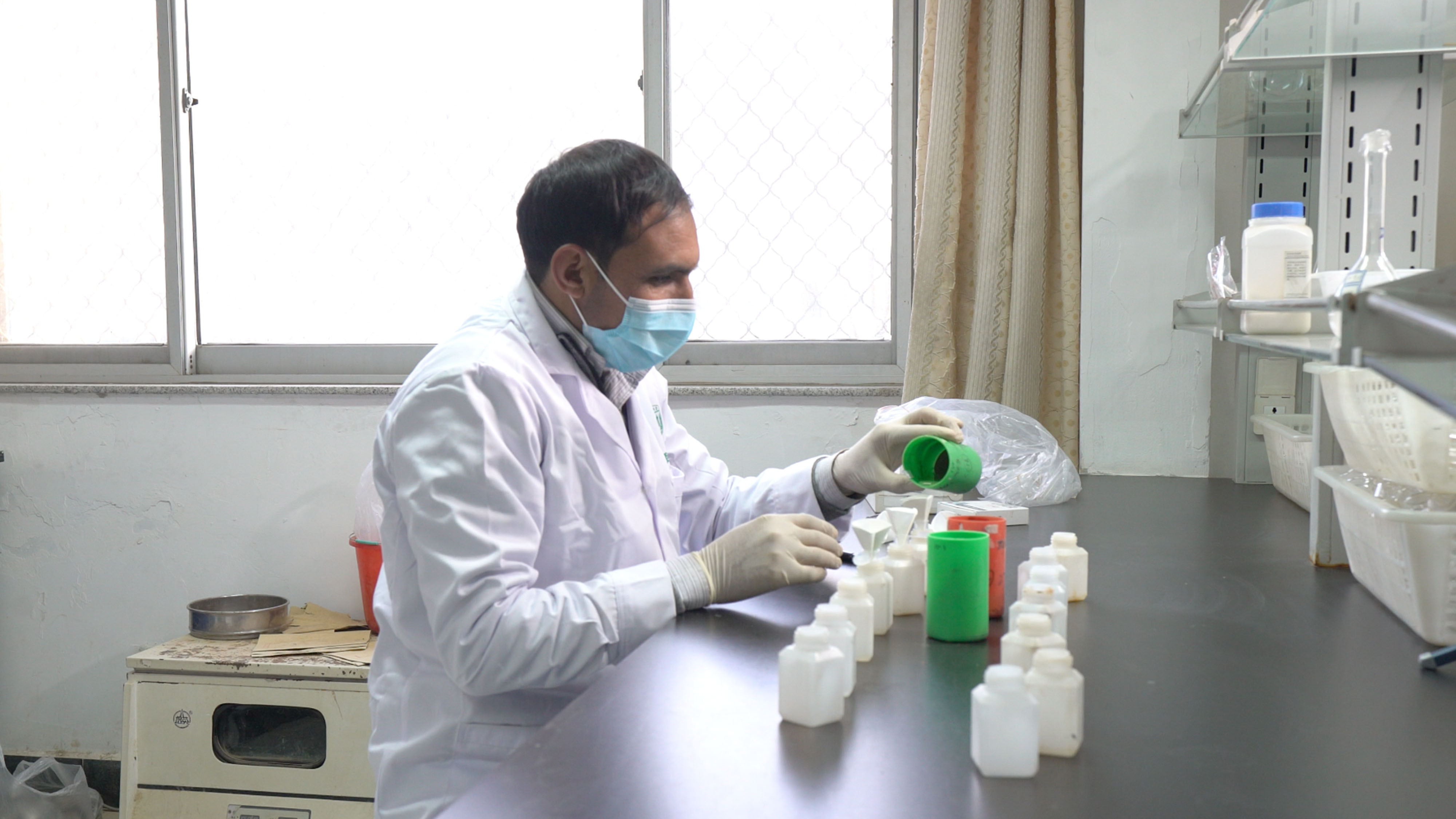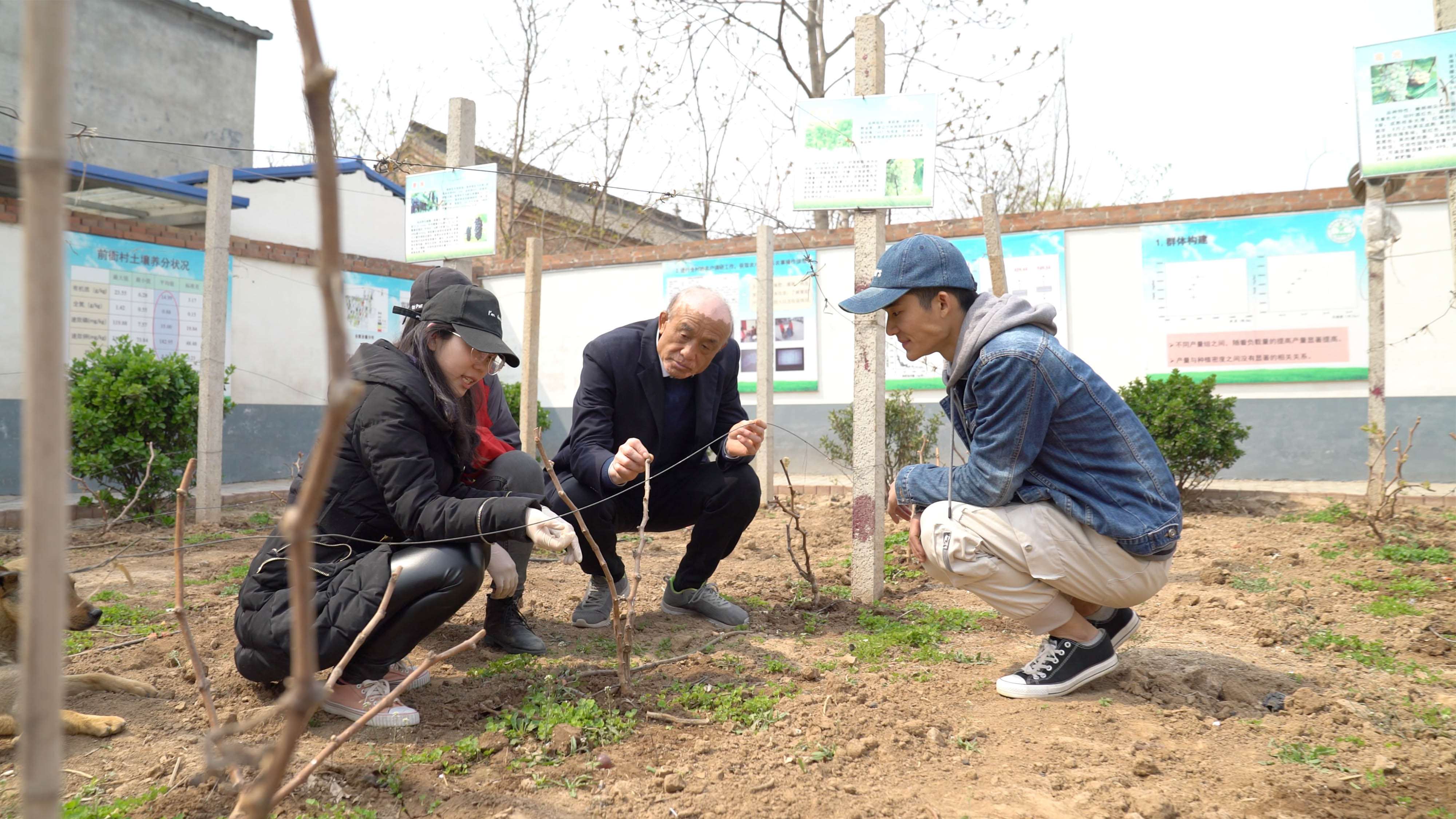
Domestic
17:30, 25-Apr-2019
International student comes to live and work in a small Chinese county
CGTN's Zang Shijie, Xu Haoming
04:26

Fazal Ur Rehman Kohistani, Chinese name Li Rui, is a Pakistani PhD student majoring in Carbon and Nitrogen Cycling and Green House Gases in China Agriculture University. Having been studying and working for three years in Quzhou, a county located in Handan City, north China's Hebei Province, Kohistani focuses more on the soil nitrogen leaching improvement in local villages.
“I first came to China four years ago, and I learned Chinese language for the first year in Beijing. Then I came to Quzhou Experimental Station with my professor to conduct on-farm research and exchange academic knowledge into scientific research,” said Kohistani.
“For me, there is no difference between metropolis like Beijing and small county like Quzhou to conduct scientific research. Agriculture is a field work, and my research is in here,” he added.

Fazal Ur Rehman Kohistani is doing research in Quzhou Experimental Station./ CGTN Photo
Fazal Ur Rehman Kohistani is doing research in Quzhou Experimental Station./ CGTN Photo
Students from China Agriculture University have the chance to live, study and work in Chinese villages, and some work at the Quzhou Experimental Station which was established in 1973 by seven teachers for on-land research and experiment to solve local plantation problems.
“We only have one experimental station, which can't meet all the needs and solve problems on time for the villagers across the county. In 2009, Science and Technology Backyards (STB) were set up in more than 10 villages in Quzhou County,” said Zhang Hongyan, deputy head of Quzhou Experimental Station, and associate professor at the university's College of Resources and Environmental Sciences.
Two to three graduate students live and work in each STB, conduct scientific research, and provide face-to-face guidance to local farmers. “We apply book knowledge with realities, and most of the time we learn from the farmers,” said Wang Xiaoyi, a second-year graduated student who lives and works in Qianya Village, 10 kilometers south of Quzhou county.
“We find problems in irrigation and fertilizers by planting our own cash crops and exchanging ideas with local farmers, in which way we can understand more thoroughly about the book knowledge,” Wang added.

Wang Xiaoyi and her schoolmates get to know the grape plantation with local farmers./ CGTN Photo
Wang Xiaoyi and her schoolmates get to know the grape plantation with local farmers./ CGTN Photo
In Qianya Village STB, students from the university give lessons to villagers once a week. "They help us reduce the cost and increase the yields, which greatly increase the villagers' income,” said Long Shuyun, Party secretary of Qianya Village.
Inspired by the local development of university-village mode, which was brought about 45 years ago by seven teachers from China Agriculture University to reclaim the salt-affected soil, Kohistani learned about the history from local villagers and talked with them as friends.
“I think the 45-year cooperation between the university and farmers are great achievements for both sides,” Kohistani said. “The biggest problem in my country is nitrogen leaching, which is the same as the research I'm doing here.”
After graduation, Kohistani wants to be a part of CPEC (China- Pakistan Economic Corridor) and to do more about the bilateral relations with the people and cultures.
370km

SITEMAP
Copyright © 2018 CGTN. Beijing ICP prepared NO.16065310-3
Copyright © 2018 CGTN. Beijing ICP prepared NO.16065310-3